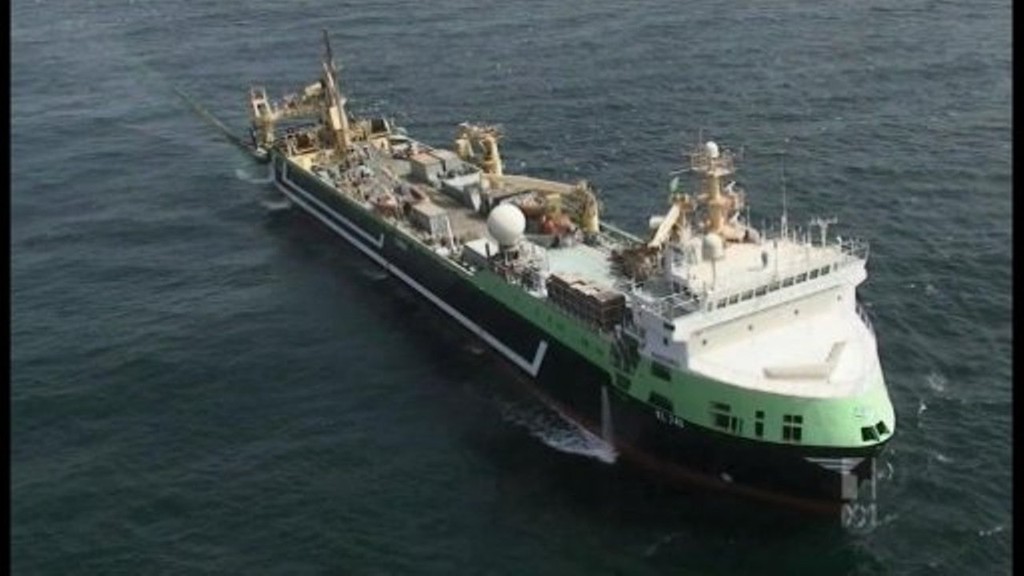Margiris super trawler faces two year ban
by Media Services on 12 Sep 2012

Margiris, courtesy of the ABC Carl Hyland
FV Margiris, now known as the Abel Tasman, the biggest vessel approved to fish Australian waters, is facing another set back, following Ministerfor the Environment, Tony Burke yesterday announcing new laws that will ban the Margiris super trawler for up to two years.
Minister Burke said more scientific work is needed to address concerns about the impact of the 142m trawler on by catch such as dolphins, sharks, turtles, seals and seabirds.
The ship's local operator, Seafish Tasmania, said it would have to lay off 50 workers and would consider legal action.
Minister Burke said his concerns centred on the fact that, unlike smaller fishing vessels, such a large factory ship with on-board processing and freezing facilities could fish for prolonged periods in the same area, risking 'a localised major bycatch issue', meaning protected species such as dolphins could be caught by accident.
Seafish Tasmania had been approved to catch 18,000 tonnes of redbait and mackerel each year, a decision that has angered conservation groups and anglers, with concerns over damage to fish stocks. It can process more than 250 tonnes of fish a day. Its net is up to 600 metres long, and the mouth 100 by 200 metres.
The Fisheries Minister, Joe Ludwig added that the federal government would also carry out a 'root and branch review' of fisheries management law in response to concerns about the 18,000-tonne fish quota given by fisheries authorities to Seafish Tasmania for the trawler.
Minister Burke acknowledged the role of overwhelming public concern in reaching this significant decision.
In a media release, conservation group Greenpeace claimed a victory for 'people power'.
'Congratulations to the housands of passionate Australians, community and environmental groups and fishing groups have stopped the Margiris from destroying Australia‘s oceans. We congratulate the Australian Government on listening to the community and taking action.'
In late August, Greenpeace activists intercepted controversial Dutch super trawler and attempted to stop it sneaking into Port Lincoln Harbour in South Australia. The activists' inflatable boat was rammed out of the way but nobody was injured.
'It was the united action of community members, environmentalists and fishing groups that convinced the government to protect Australia’s fish stocks, marine wildlife and fishing communities,' added the media release.
However Greenpeace alliance with fishing communities was only short-lived, with the release continuing, calling for a ramped up campaign against 'destructive fishing'.
'The Margiris is just one fishing vessel that is impacting marine ecosystems globally. The global fishing fleet is catching more fish than nature can sustain. In our region, the Pacific faces the threat of over-sized foreign vessels every day. Greenpeace will continue its global campaign against overfishing and destructive fishing practices.'
The Commonwealth Ombudsman is investigating the Australian Fisheries Management Authority's approval process with a member of Seafish Tasmania also a member of the approval committee.
More at www.greenpeace.org/australia/en/
If you want to link to this article then please use this URL: www.sail-world.com/101951